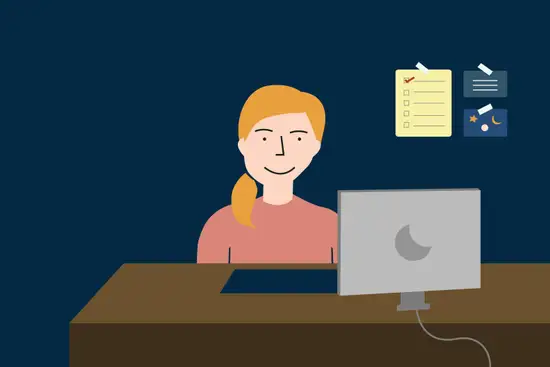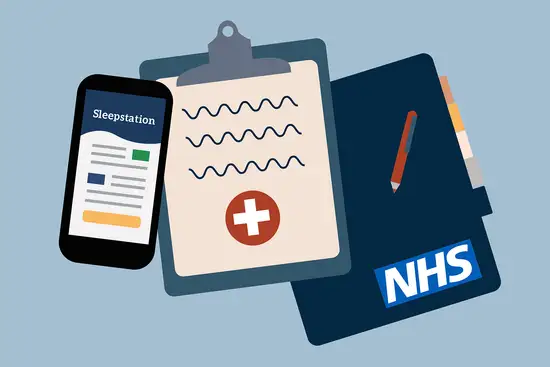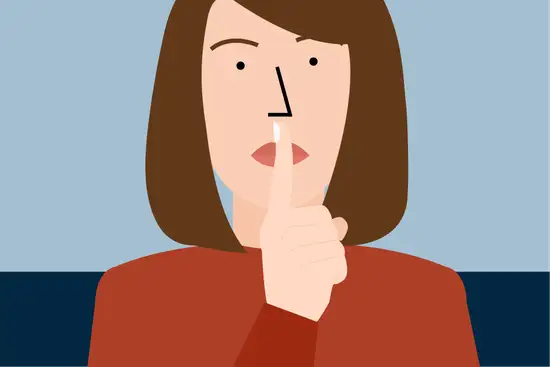Key points
Most of us will snore occasionally but, when your snoring becomes a regular problem, it has the potential to disrupt the sleep and wellbeing of your entire household. In this article, we bring you all the latest sleep science on snoring, including:
- what causes snoring?
- the effects snoring can have on your sleep and health
- factors that can contribute to snoring
- ways to stop snoring
- steps you can take if snoring is interfering with your sleep.
Is your snoring a problem?
Just about all of us snore from time to time and it’s usually nothing to worry about. It’s estimated that up to 40% of people in the UK snore at night.1 Snoring increases with age, and roughly twice as many men snore than women.2
While it’s ok to snore occasionally, if you’re snoring often it can be a sign of a sleep disorder and may be affecting both your sleep and your overall health.
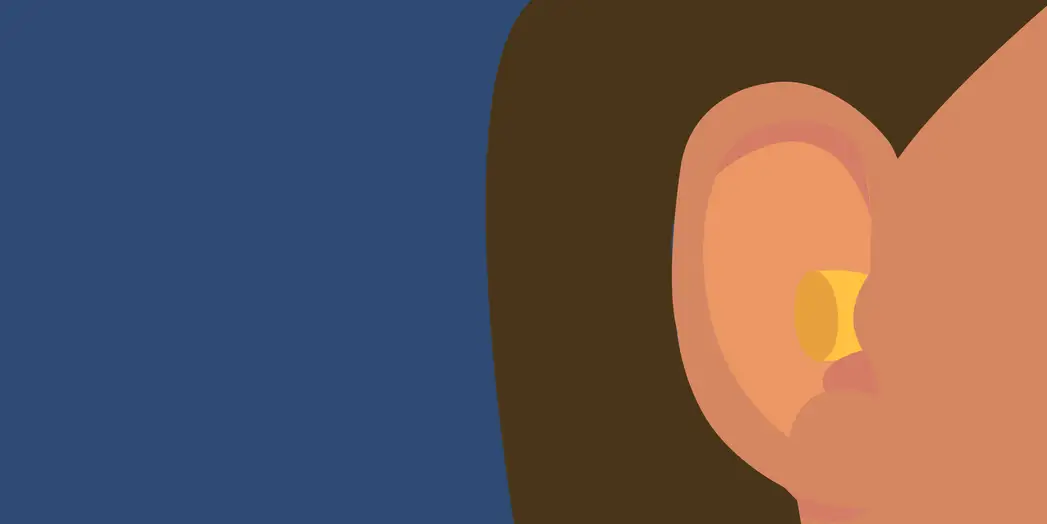
Sometimes you may not even know you’re snoring in your sleep but there’re some tell-tale clues that can indicate you may have a problem. You might find yourself:
- waking with a dry mouth or sore throat
- feeling unrefreshed when you wake up
- experiencing frequent daytime tiredness
- having a headache on waking
- being irritable or unable to concentrate during the day.
Sometimes it’s a bed partner who alerts you to the fact that you snore and their sleep can also be negatively affected by your snoring. Sharing a bed with a snorer can be a nightmare for the sleep of the other person and snoring can impact all members of a household if it’s particularly loud.
Is snoring coming between you and a good night’s sleep?
If you’re finding it hard to sleep at night due to a snoring partner, you’re at higher risk of developing insomnia. Our sleep improvement programme equips you with the tools and techniques to take back control of your sleep. So why wait?
Sometimes snoring indicates a bigger sleep problem
Loud and frequent snoring can be a sign of obstructive sleep apnea (OSA), a sleep disorder that shouldn’t be ignored. So how do you tell if it’s simple snoring or something more serious? While both OSA and snoring involve the symptoms listed above, with OSA you also repeatedly pause breathing.
These pauses can last from several seconds up to a minute and when breathing resumes, you may gasp, rasp or choke. This can happen many times each hour and the effects on your sleep and overall health can be profound.
It’s often a bed partner who notices OSA as the noises involved can be quite dramatic. If you sleep alone and suspect you may have OSA, keeping a sleep diary can be helpful to highlight discrepancies between how much you’re sleeping and how well-rested you’re feeling.
Typically, with OSA your sleep won’t leave you feeling well rested and ready for the day ahead. There’re smartphone apps you can download that will record your snoring during the night. These will also record any coughing, gasping or choking sounds that could indicate OSA.
It’s important to remember that not all snoring indicates OSA but it’s definitely something to rule out if you know you’re snoring regularly.
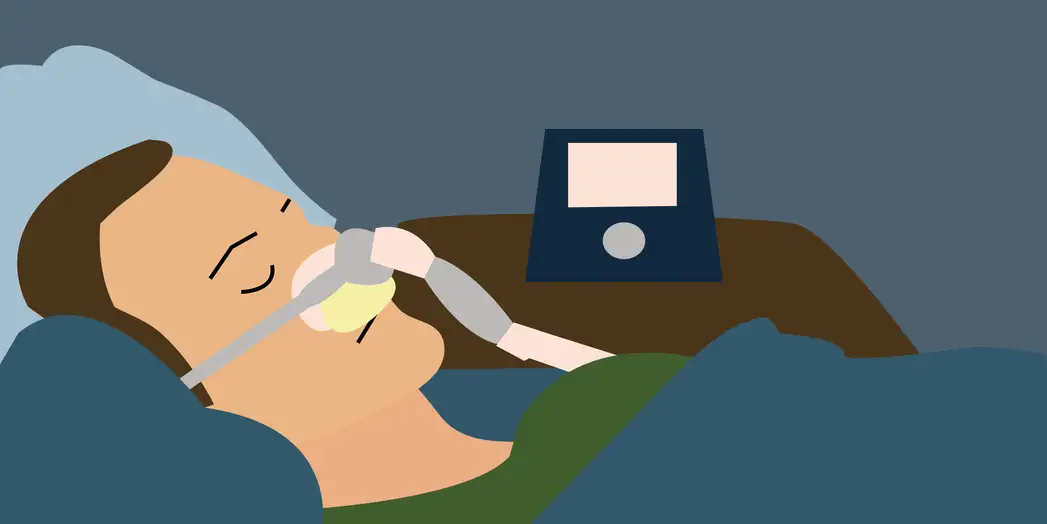
What exactly is snoring?
Snoring is a loud noise, usually a snorting or grunting sound, made while you sleep. The noise is made by air moving over the tissues of the mouth and nose. When the airway is obstructed in some way, the movement of air produces a vibrating sound. This is the snore.
Snoring comes in several different forms, all with their own different type of noise, which is why snores often change sound. We can loosely group snoring into three types, based on which area is obstructed:
- mouth
- nose
- tongue.
You might snore through your mouth if your nose is really blocked or if your tonsils are enlarged and cause you to breathe through your mouth. If your nose is only partly blocked and you’re breathing through it, this can lead to the passage of air causing vibrations through your nasal passage.
If your tongue muscle relaxes too much during sleep, this can cause your tongue to obstruct your breathing and cause snoring.
Behind your top teeth you have your hard palate and towards the back of the mouth, there’s a less rigid, more muscular area of the mouth. This is your soft palate.
When a snoring sound comes from the throat, this is generally because of vibrations of your soft palate. This type of snoring can be the most severe and may be an indicator of sleep apnea.
So now we know that our snores can sound different because of where they’re coming from. Let’s move on to look at the many reasons behind why we snore.
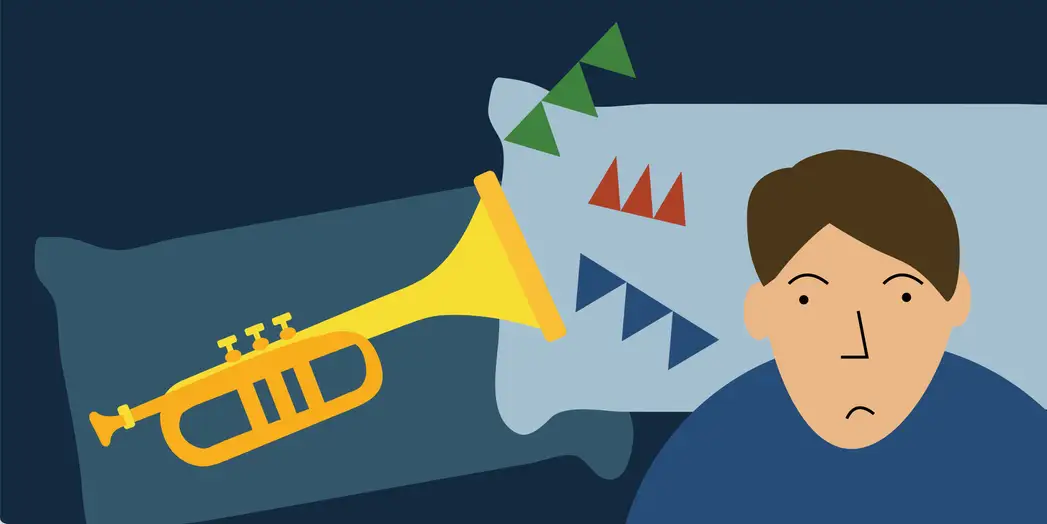
What causes snoring?
There’s actually a lot of things that can cause you to snore. Some of the most common snoring causes include:
1. Being overweight
One of the biggest risk factors for snoring is carrying extra weight. Rates of obesity have been increasing steadily across the globe over the past 50 years 3 and being overweight or obese can greatly increase your chances of snoring.
Why is this?
For some people it’s as simple as carrying excess weight causes fat deposits across the neck region and this extra weight puts too much pressure on the muscles of the throat, causing the airway to collapse more easily.
For other people, having a bit of extra weight around the middle can push up their diaphragm and reduce their lung capacity when lying down. This all increases pressure on the airway, leading it to be more prone to collapse and the person to snore.
And it doesn’t stop there. Sleep and weight both influence each other. Being overweight can lead to disturbed sleep and not getting good quality sleep can influence your food choices.
When we’re tired, we tend to reach for the high-fat, high-sugar options over more healthy foods. So a vicious cycle can develop, where your weight causes you to snore, your snoring leads to poor sleep and the poor sleep makes you reach for the junk food.
2. Drinking alcohol or smoking cigarettes
Alcohol may help you to get to sleep initially but drinking alcohol close to bedtime can interfere with how well you sleep and can lead to snoring. Multiple studies have shown that drinking alcohol also increases the severity of snoring.4 5 6 7
Alcohol can make you snore more because it relaxes your muscles. When the muscles of the mouth and throat are relaxed by alcohol, it becomes harder for these muscles to keep your airway open and this results in snoring.
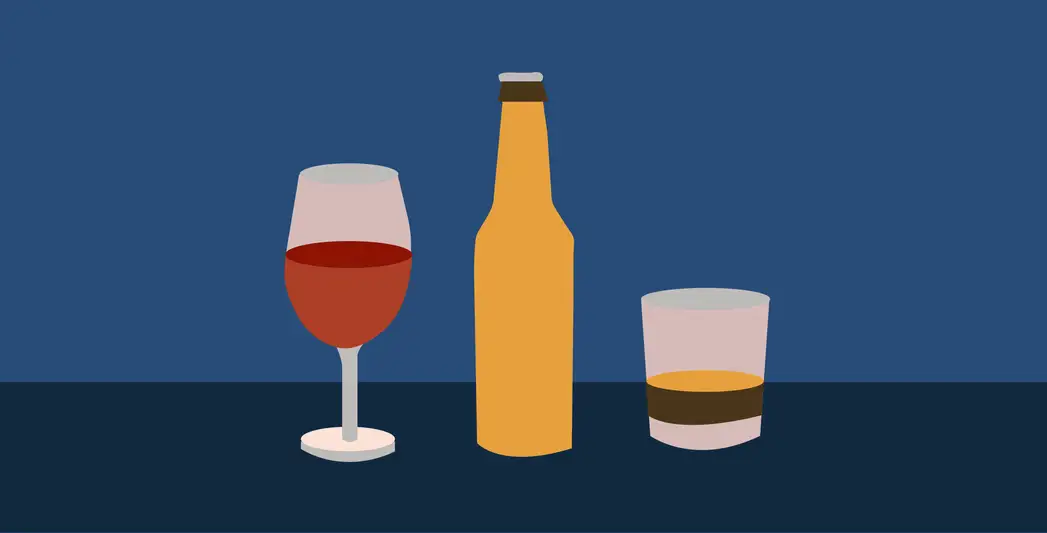
In addition to making you snore, drinking alcohol can reduce oxygen levels in the blood,6 7 make it harder for you to stay asleep, cause you to sleep for less time overall and can increase your chances of developing insomnia. This is especially common in people who have an alcohol use disorder or binge-drink.5 8
Smoking is thought to increase your risk of snoring because tobacco exposure causes irritation and inflammation of the upper airways.9 Passive smoking and previous smoking are also both linked to risk of snoring.
One large study questioned over 15,000 people across Northern Europe on their sleeping and lifestyle habits, to identify links between snoring and tobacco use.9 Their results showed that the more someone smoked, the more they snored.
They also found that for passive smokers, the more smoke they were exposed to, the more snoring they experienced. Ex-smokers in their study snored more than people who’d never smoked. So, any exposure to tobacco smoke can increase your risk of snoring.
Interestingly, while snoring is generally more common in men than women, for smokers this is reversed. Women exposed to tobacco have a higher risk of snoring than men.2 9
3. A physical obstruction such as a deviated nasal septum or enlarged tonsils
Anything that physically blocks or obstructs your upper airways can influence how much you snore. People with a deviated septum have one nostril that’s narrower than the other, because the wall between the two nostrils (the septum) isn’t straight or is over to one side.
There’re different types and severities of deviated septum and they can all obstruct your breathing while you sleep. Similarly, if you have enlarged tonsils or adenoids, these can partially block your throat and make you snore.
4. Your genetics
Snoring can definitely be a family affair. If someone else in your family is a snorer, you’ve got a higher chance of being a snorer too. Studies have looked at genes that might be associated with snoring and results have identified potential genes implicated in snoring.2
Researchers have also found new genetic links between snoring and other factors, such as your body mass index (BMI), alcohol intake and tobacco use. This means that whether you snore is probably down to a mix of lifestyle and genetic factors.
5. Allergies
Allergies can cause your tonsils and adenoids to be enlarged which we’ve already mentioned as causes of snoring. Many allergies can give you a stuffed-up nose and this can make you snore loudly and more often.
A good example here is hay fever, which can leave you sneezing or with a blocked nose and often interferes with getting a good night’s sleep. There’re plenty of other allergens too, such as pet dander or dust, that have the potential to make you snore.
6. Sleeping on your back
This one is quite simple: when you sleep on your back, your tongue and soft palate relax in a way that can restrict the throat and block your airway. When you sleep on your side, this effect is usually lessened.
So if your sleep’s being disturbed by someone who’s snoring the night away on their back, gently rousing them often leads to a change of sleeping position and an end to the giant snores. A simple change of position can be really effective for this type of snoring.
7. Taking sleep medication.
Some medication for sleep may make you fall asleep and stay asleep but you could still be spending your sleep time snoring. This is because sleeping pills are usually drugs that help you to relax, both physically and mentally.
As your body relaxes, the muscles of your throat and mouth can relax a little too much, leading to the classic airway obstruction that results in snoring. The data here isn’t clear-cut though ― some studies show sleeping pills cause snoring and others show that they don’t.10
It’s something to be aware of if you’re taking medication for sleep and think or know that you’re snoring.
8. Being postmenopausal
After women go through the menopause, the levels of certain hormones become low. One such hormone is oestrogen, which is important for maintaining muscle tone. With reduced levels of oestrogen, the muscles in the throat can collapse more readily during sleep.

The hormone progesterone is important for stimulating respiration and levels of this hormone also drop dramatically after the menopause.11 Additionally, weight gain is common in post-menopausal women, and we’ve already discussed how carrying extra weight can increase your chances of snoring.
So postmenopausal women have several factors to contend with that may contribute to their risk of snoring.
9. Pregnancy
There’re lots of reasons why pregnancy can lead to snoring. Firstly, rising hormone levels cause blood vessels to expand and mucous membranes to swell in your nose, blocking your nasal passages.
Pregnancy weight gain also adds to the risk of snoring. As pregnancy advances, your lungs are forced upwards and have less space to expand when you breathe which can add to your snoring woes.
Thankfully, these pregnancy-related snoring triggers should abate after your pregnancy, as your hormone levels go back to normal and pregnancy weight-gain reduces.

So now we’ve covered the most common causes of snoring, what can you do to treat them?
It’s clear from this list that some of these causes can have simple remedies but for others the treatment may be more complex. Let’s have a look now at how snoring is treated.
How to stop snoring
Naturally, the treatment option for your snoring will depend on what’s causing you to snore. We’ll start by looking at some simple lifestyle changes that can help you to stop snoring and then we’ll discuss more specific medical options that may be necessary for some types of snoring.
Manage your weight
Firstly, taking control of your weight can improve how much you snore. Your sleep and weight can have a big influence on each other. Being overweight or obese can affect how you sleep and how much you snore so, for some, losing weight can reduce your snoring and improve your overall sleep.
Adding regular exercise into your daily routine is one way to encourage weight loss, which can have multiple positive effects on your sleep and wellbeing. It’s common sense but we often overlook the fact that regular exercise helps your body to build up a feeling of tiredness by bedtime.
Over the day, your sleep drive increases so in the morning you feel energised and by bedtime you should feel sleepy. Many of us know that this isn’t always the case and by the time we get into bed, we’re not always sleepy enough to sleep.
When you include exercise in your day, this adds to your sleep drive and helps to increase your need to sleep by bedtime. Exercise is also great for boosting mood and improving your overall health so there’re many benefits to be had here.
Limit alcohol and tobacco
Reducing how much alcohol you drink or stopping drinking altogether can help you achieve a quieter sleep. While a nightcap before bed isn’t always a bad thing, if you find it’s making you snore, then it’s best to give it a miss.
The same holds true for tobacco exposure, whether you smoke or are a passive smoker. Reduce your exposure to tobacco and your snoring will likely improve.
Manage allergies
Allergens come in many different varieties, so knowing just what sets your allergies off is key to improving your sleep. If it’s dust mites, then you might want to think about ways to keep dust levels down. If it’s hay fever, then limiting your exposure to pollens is essential.
Changing your pillows regularly is one way to keep dust mites at bay. Keeping pets out of the bedroom can help with pet dander and taking a hot shower at night can help to remove other allergens that may have built up in your nose during the day.
There’s a wide range of things that can cause allergies, so how you manage your specific ones will be individual to you. The key is to reduce or limit nasal congestion and any inflammation to your upper airway that could be contributing to your snoring.
If your allergies are causing you to snore and are interfering with your sleep then don’t hesitate to speak to a pharmacist or your healthcare provider to see what options are available to help you control your allergies and get back to sleeping well.
Take control of your sleeping position
If your back sleeping is the root of your snoring then a simple solution is to make it difficult for you to roll onto your back in bed. You can try putting a pillow behind your back to keep you on your side, or you can invest in a wide variety of pillows and wedges that keep you on your side while sleeping.
A simple hack is to sew tennis balls into the back of a t-shirt (or even simpler is to buy one of these ready-made). This works by rousing you when you roll onto your back and so forcing you back onto your side. There’re also a range of belts and devices that can alert you to when you roll onto your back.
Anti-snoring devices
There’s a large array of products aimed at helping you to stop snoring, including mouthpieces, nose strips and clips, chin straps, various electronic devices and anti-snoring sprays… The best anti-snoring device for you will depend on what’s causing you to snore.
We’ll have a look at the most well-known of the stop snoring devices next and we’ll discuss which types of snoring they can help with.
Mouthpieces
These come in a variety of styles and mainly work to either keep the tongue in place or hold your jaw in position to allow for good airflow when you breath. Devices that keep your tongue or jaw in place can be useful for back sleepers or people who snore primarily through their mouth.
Mouthpieces that keep the tongue muscle from collapsing and obstructing the throat are called tongue retaining devices (TRDs) whilst those that keep the jaw aligned are called mandibular advancement devices (MADs).
These types of devices have been extensively evaluated in helping people with sleep apnea or those who snore to breathe easier and they’re highly effective at reducing obstruction in the airway.12 13 14
Devices like these can be made to measure by a medical professional, which involves taking casts of your teeth and mouth. Other versions can be bought over the counter and are generally moulded by you at home to fit your mouth.
Chinstraps
Chinstraps are worn over the head and chin to hold your chin in a good position for unobstructed breathing or to hold the mouth closed to stop you snoring (or both).
Many aim to work in a similar way to MADs by realigning the jaw to allow the airway to remain open, but differ from MADs in that they’re worn on the exterior (i.e. not in your mouth).
There’re a range of chinstraps available but there’s not a lot of scientific research to show they’re effective.15 16
One study looked at whether wearing a chinstrap could help with symptoms including snoring in a group of 26 adults with OSA.13 Their results didn’t show the chinstrap to be effective at reducing snoring or any other symptoms of OSA.
However, another study group reported improvement with use of a chinstrap,16 and they were keen to recommend that healthcare providers shouldn’t be put off suggesting alternative solutions such as chinstraps to help their patients.17
So while this method might not work for everyone, it’s something to consider if you’re snoring because you sleep with your mouth open.
Nose strips and clips
Clips and strips for your nose aim to keep your nasal passages open so are aimed at both people who snore through their nose or snore through their mouth because their nose is blocked. There’s a huge range of devices on the market in this category.
Nose strips attach to the skin over the bridge of the nose and hold the nasal passages open externally while clip-like devices fit into your nostrils to hold the nasal passages open from inside.
Scientific studies have looked at whether nose strips and clips improve snoring and the results are mixed.16 Studies differ in how they measure snoring — one group may measure the loudness of the snores whilst another might be looking at how often people snore.
This makes it hard to compare studies. Overall, it seems that nose strips might slightly improve snoring but the effects aren’t huge and strips are likely not going to completely cure your snoring.18
Medical interventions for snoring
For some people, relief from snoring can involve surgery. This option will generally only be explored if lifestyle changes and non-surgical treatments have not been successful and it’s not guaranteed to stop you snoring altogether.
There’s a range of surgical procedures that can improve snoring, including:
- limited palatoplasty or uvulopharyngopalatoplasty (UPPP)
- laser-assisted uvulopalatoplasty (LAUP)
- pillar procedure
- nasal surgery.
Surgeries can involve restructuring of the soft palate to make it easier to breathe through the mouth. These types of surgeries include UPPP, LAUP and the pillar procedure.
In UPPP, some of the soft tissue at the back of the throat is removed. This can involve removing the tonsils or adenoids or taking out part of the soft palate or uvula (the bit of tissue that hangs down at the back of your throat).
The end result of this surgery is that obstruction is removed from the throat so the airway is clearer and breathing should be improved. UPPP is usually performed under general anaesthetic and the recovery can be quite painful.
A less intrusive procedure is LAUP, in which part of the uvula is removed using a laser. This is a minimally invasive and fairly quick procedure that can be performed under local anaesthetic and it has a short recovery time too.
Another option is the pillar procedure, in which plastic pillars are inserted into the soft palate to give it a little more structure and help it stay in place when you’re sleeping.
This procedure has been examined in scientific studies and some show it to be very effective at reducing snoring19 but more studies with greater patient numbers are needed to strengthen these findings.
It’s FDA approved in the USA as a treatment for snoring and OSA but in the UK the procedure isn’t currently recommended by the National Institute for Clinical Excellence (NICE) for people who snore, so it’s only available in private clinics.
Nasal surgery
Surgery to straighten the central wall of the nose (the septum) can help to make breathing easier through both nostrils and can reduce the severity of snoring. This is called septoplasty and is usually performed under general anaesthetic, with recovery taking one to two months.
There’re also several surgical techniques that can help to open up the nostrils by removing obstructions in the nasal passages. Blockages can often be caused by growths in the nose called polyps or by enlargement of structures in your nose called turbinates.
Polyps can be removed by a process called a polypectomy and enlarged turbinates can be reduced in size by a procedure called a turbinate reduction. It can take a couple of weeks to recover from these procedures but they can be very effective in helping you to breath more freely through your nose.
So it’s clear that there’s a large range of treatment options available for you if you snore, which cover everything from simple lifestyle changes all the way to surgical interventions. With so many different approaches to reducing your snoring available, snoring shouldn’t be something you have to live with.
But what if you’re the person who’s living with a snorer?
Snoring and relationships
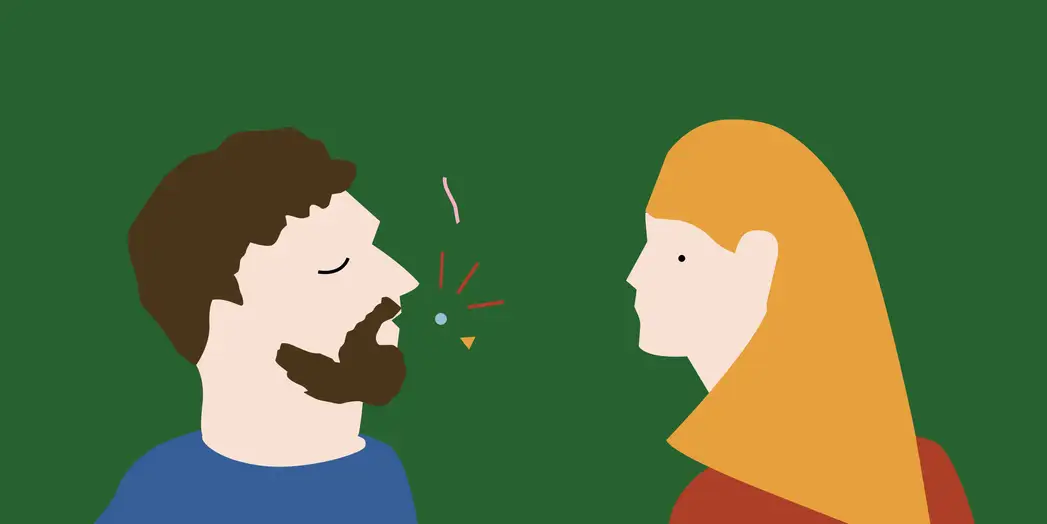
Sharing a bed with a snorer can put a lot of strain on your relationship. People who sleep with a snorer can see their own sleep quality drop dramatically. Their daytime functioning can also take a hit and mental health can be affected.
If your partner’s a snorer and it’s affecting your sleep, you need to address the situation. Sleeping in separate beds is an option for some people, though for others this won’t be a route they want to explore. There’s no right and wrong here, you should do what works for your relationship.
If you’re sleeping in the same bed with a snorer, communication is key. You need to discuss the snoring ― don’t forget, many snorers may not even realise they snore. Hopefully your partner will want to explore ways to reduce their snoring so they can improve your sleep as well as their own.
Neither of you may have realised that snoring could be causing both of you to be tired and not at your best during the day. Taking steps to improve your and your partner’s sleep can have a major impact on how you feel and how much energy you have during the day.
Sometimes the person who doesn’t snore can get into a cycle of not being able to get to sleep at night because they’re anticipating their partner snoring. Or they may find it difficult to get back to sleep during the night when their sleep has been disturbed by their snoring partner.
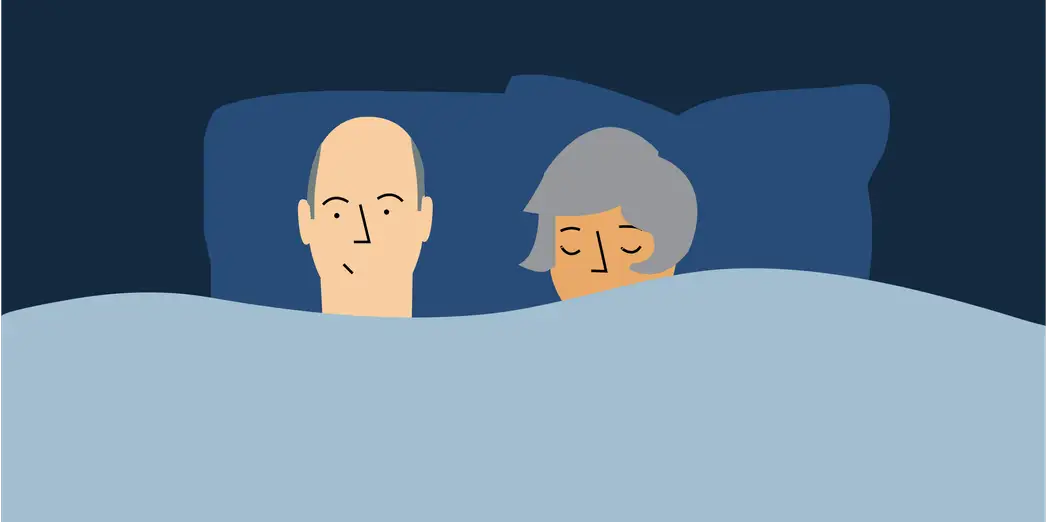
When your sleep is being disturbed like this night after night, it can lead to you developing a sleep disorder, insomnia. Insomnia refers to an inability to fall asleep or stay asleep. It can leave you feeling exhausted during the day and can have a toll on your mental wellbeing.
The good news is that insomnia responds extremely well to treatment. If your disturbed sleep is causing you concern, take our short sleep quiz to see how we can help you. We’ve helped thousands of people to take back control of their sleep and our results speak for themselves.
At Sleepstation, we use Cognitive Behavioural Therapy for insomnia (CBTi) to help you improve your sleep. This is a technique that’s recommended as the first line treatment for insomnia and it’s both highly effective and produces sustainable results.
So if your sleep has been affected by a snoring partner, we can help you to get back to sleeping well. For the snorer in your life, we hope the information in this article can help them to identify the best route to reduce their snoring and improve their sleep.
We can’t say this enough: snoring isn’t something you should try to live with. It can have negative effects on both your nighttime sleep quality and how you feel during the daytime, so don’t put off discussing your snoring with a healthcare professional.
Once you better understand the potential root causes of your snoring, there’re plenty of treatment options available to help you get a better night’s sleep and you’ll likely feel the positive effects on your health and wellbeing too.
Summary
Snoring is something that we’re all going to do from time to time, but when it starts to affect your sleep and daytime wellbeing, it shouldn’t be ignored.
- Snoring is the noise of air vibrating as it passes over an obstruction in your airway.
- A wide range of factors can cause you to snore so identifying why you’re snoring is key to knowing how to treat it.
- Treatment options for snoring are many and varied but adopting healthy lifestyle choices is usually the first and simplest approach to improving your snoring. Loud and frequent snoring can be a symptom of obstructive sleep apnea (OSA) so it’s important to rule out this sleep disorder if you’re a big snorer.
- Bed partners can also experience sleep problems when they share a bed with a snorer.
References
- Lechner M, Breeze CE, Ohayon MM, Kotecha B. Snoring and breathing pauses during sleep: interview survey of a United Kingdom population sample reveals a significant increase in the rates of sleep apnoea and obesity over the last 20 years – data from the UK sleep survey. Sleep Med 2019; 54: 250–256. ↩︎
- Campos AI, García-Marín LM, Byrne EM, Martin NG, Cuéllar-Partida G, Rentería ME. Insights into the aetiology of snoring from observational and genetic investigations in the UK Biobank. Nat Commun 2020; 11: 817 ↩︎
- Obesity and overweight. Who.int. Available here. (accessed 5 Sep2022). ↩︎
- Burgos-Sanchez C, Jones NN, Avillion M, Gibson SJ, Patel JA, Neighbors J et al. Impact of alcohol consumption on snoring and sleep apnea: A systematic review and meta-analysis. Otolaryngol Head Neck Surg 2020; 163: 1078–1086. ↩︎
- Angarita GA, Emadi N, Hodges S, Morgan PT. Sleep abnormalities associated with alcohol, cannabis, cocaine, and opiate use: a comprehensive review. Addict Sci Clin Pract 2016; 11: 9. ↩︎
- Issa FG, Sullivan CE. Alcohol, snoring and sleep apnea. J Neurol Neurosurg Psychiatry 1982; 45: 353–359. ↩︎
- He S, Hasler BP, Chakravorty S. Alcohol and sleep-related problems. Curr Opin Psychol 2019; 30: 117–122. ↩︎
- Canham SL, Kaufmann CN, Mauro PM, Mojtabai R, Spira AP. Binge drinking and insomnia in middle-aged and older adults: the Health and Retirement Study: Binge drinking and insomnia in middle-aged and older adults. Int J Geriatr Psychiatry 2015; 30: 284–291. ↩︎
- Franklin KA, Gíslason T, Omenaas E, Jõgi R, Jensen EJ, Lindberg E et al. The influence of active and passive smoking on habitual snoring. Am J Respir Crit Care Med 2004; 170: 799–803.
↩︎ - Jullian-Desayes I, Revol B, Chareyre E, Camus P, Villier C, Borel J-C et al. Impact of concomitant medications on obstructive sleep apnoea: Medications and obstructive sleep apnoea. Br J Clin Pharmacol 2017; 83: 688–708.
↩︎ - Sigurðardóttir ES, Gislason T, Benediktsdottir B, Hustad S, Dadvand P, Demoly P et al. Female sex hormones and symptoms of obstructive sleep apnea in European women of a population-based cohort. PLoS One 2022; 17: e0269569.
↩︎ - Ilea A, Timuș D, Höpken J, Andrei V, Băbțan A-M, Petrescu NB et al. Oral appliance therapy in obstructive sleep apnea and snoring – systematic review and new directions of development. Cranio 2021; 39: 472–483. ↩︎
- De Meyer MMD, Vanderveken OM, De Weerdt S, Marks LAM, Cárcamo BA, Chavez AM et al. Use of mandibular advancement devices for the treatment of primary snoring with or without obstructive sleep apnea (OSA): A systematic review. Sleep Med Rev 2021; 56: 101407.
↩︎ - Chang ET, Fernandez-Salvador C, Giambo J, Nesbitt B, Liu SY-C, Capasso R et al. Tongue retaining devices for obstructive sleep apnea: A systematic review and meta-analysis. Am J Otolaryngol 2017; 38: 272–278.
↩︎ - Bhat S, Gushway-Henry N, Polos PG, DeBari VA, Riar S, Gupta D et al. The efficacy of a chinstrap in treating sleep disordered breathing and snoring. J Clin Sleep Med 2014; 10: 887–892. ↩︎
- Vorona RD, Ware JC, Sinacori JT, Ford ML 3rd, Cross JP. Treatment of severe obstructive sleep apnea syndrome with a chinstrap. J Clin Sleep Med 2007; 3: 729–730.
↩︎ - Vorona RD, Ware JC. Use of a chinstrap in treating sleep disordered breathing and snoring. J Clin Sleep Med 2014; 10: 1361. ↩︎
- Camacho M, Malu OO, Kram YA, Nigam G, Riaz M, Song SA et al. Nasal dilators (Breathe Right Strips and NoZovent) for snoring and OSA: A systematic review and meta-analysis. Pulm Med 2016; 2016: 4841310. ↩︎
- Khasawneh L, Odat H, Khassawneh BY, Kheirallah KA, Khassawneh AH, Omari AA et al. Efficacy of pillar implants to reduce snoring and daytime sleepiness. Future Sci OA 2021; 7: FSO701. ↩︎
